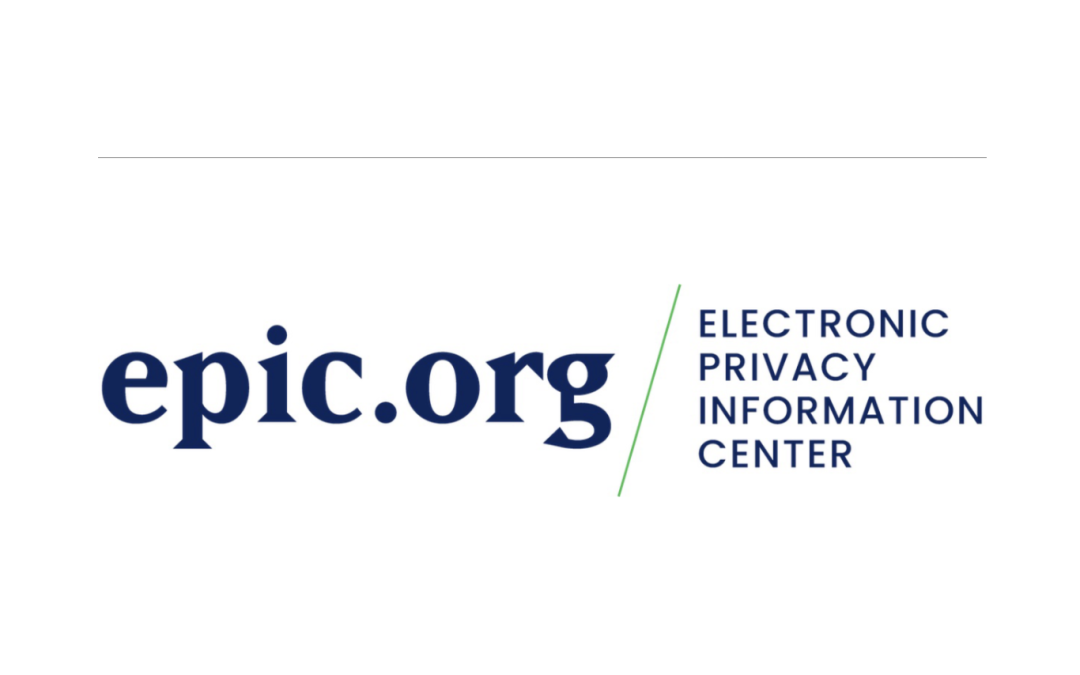The Electronic Privacy Information Center (EPIC) announced the addition of fifteen members to its Advisory Board. Since its founding, EPIC has drawn on the expertise of leading scholars, experts, and advocates in the privacy, civil liberties, and cybersecurity space to inform its work. And today we are thrilled to see this group grow. Gianclaudio Malgieri is one of them.
These new members will help inform EPIC’s research, advocacy, and litigation work at a time when efforts to rein in large technology platforms are front and center in global policy debate.
The new members are:
- Chaz Arnett – Associate Professor of Law at the University of Maryland and a faculty fellow at Data & Society. His research explores the interplay between race, digital technologies, and criminal legal processes.
- Hannah Bloch-Wehba – Associate Professor of Law at Texas A&M University School of Law. Her scholarship explores the intersection of tech and civil liberties, primarily focusing on free expression, privacy, and government accountability.
- David Brody – Managing Attorney of the Digital Justice Initiative at the Lawyers’ Committee for Civil Rights. He focuses on issues related to the intersection of technology and racial justice, such as consumer privacy, algorithmic bias, discriminatory advertising, election disinformation, free speech, and government surveillance.
- Elizabeth Denham – International consultant for Data and Tech at BakerCanada and former UK Information Commissioner (2016 – 2021). As Information Commissioner for the UK, she built and led the largest data protection regulator in the world and Chaired the Global Privacy Assembly from 2018 to 2021.
- Ben Green – Postdoctoral scholar in the Michigan Society of Fellows and an assistant professor in the Gerald R. Ford School of Public Policy. He studies the ethics of government algorithms, with a focus on algorithmic fairness, human-algorithm interactions, and AI regulation.
- Gianclaudio Malgieri – Associate Professor of Law and Technology at the EDHEC Business School in Lille (France) and the Co-Director of the Brussels Privacy Hub. He conducts research on and teaches data protection law, privacy, AI regulation, digital law, consumer protection in the digital market, data sustainability, and intellectual property law.
- Safiya Noble – Internet studies scholar and Professor of Gender Studies and African American Studies at the University of California, Los Angeles where she serves as the Co-Founder and Co-Director of the UCLA Center for Critical Internet Inquiry. Author of Algorithms of Oppression: How Search Engines Reinforce Racism.
- Ngozi Okidegbe – Associate Professor of Law and an Assistant Professor of Computing & Data Sciences at Boston University. Her work examines how the use of predictive technologies in the criminal justice system impacts racially marginalized communities.
- Neil Richards – Koch Distinguished Professor in Law at Washington University School of Law, where he co-directs the Cordell Institute for Policy in Medicine & Law and teaches about the regulation of the technologies powered by human information that are revolutionizing our society. Author of Why Privacy Matters.
- Johnny Ryan – Senior Fellow at the Irish Council for Civil Liberties and a Senior Fellow at the Open Markets Institute. He is focused on surveillance, data rights, competition/anti-trust, and privacy. Protocol named him “The thorn in Google’s side.”
- Dan Solove – John Marshall Harlan Research Professor of Law at the George Washington University Law School and the founder of TeachPrivacy, a privacy and cybersecurity training company. He is also the founder of the Privacy Law Scholars Conference, the largest and leading academic conference in privacy law, and the Privacy+Security Academy, an organization that provides education and events to professionals.
- Alicia Solow-Niederman – Associate professor at the University of Iowa College of Law. Focusing on algorithmic accountability, data governance, and information privacy, she evaluates how digital technologies, such as artificial intelligence, both challenge and offer opportunities to refine and reflect on regulatory approaches and underlying legal values.
- Carissa Veliz – Associate Professor in Philosophy at the Institute for Ethics in AI, and a Fellow at Hertford College at the University of Oxford. Author of Privacy Is Power and the editor of the forthcoming Oxford Handbook of Digital Ethics.
- Kate Weisburd – Associate Professor of Law at George Washington University School of Law and founder of the Youth Defender Clinic at the East Bay Community Law Center. Her research focuses on carceral surveillance and technology, and how these methods of criminal court control impact racial and economic inequality, as well as privacy and other civil liberties.
- Bianca Wylie – Partner at Digital Public and the co-founder of Tech Reset Canada. She is a writer and an open government and public technology advocate with a dual background in technology and public engagement.


Recent Comments